“language isn’t revolutionary enough”: In/Human Resources and Rachel Zolf’s Gematria
MLA Chernoff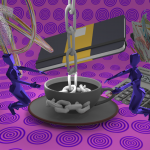
MLA Chernoff closely examines Rachel Zolf's intentionally unreadable suite of transmedial poetry, Human Resources (2007), in order to discern a digital poetics of appropriation that carefully grapples with the problematics of historically exclusionary institutions like conceptual poetry and CanLit. They argue that behind the constraint-based, numerological practices used to create these strange poems lies a pragmatic – yet metaphysically-grounded – method of reframing the professionalization of creative writing and upending the neoliberal conventions of governmental grants.
“looked at me like I was wild s”: The Mediation of Settler-Colonial Visuality in Jordan Abel’s Injun
Alois Sieben
Alois Sieben investigates how Jordan Abel’s Injun experiments—poetically, visually, digitally—with an anxiety-provoking limit to the settler-colonial gaze, rather than feeding this gaze a new representation of Indigeneity. Abel’s work is positioned within David Garneau’s history of Indigenous screen objects, in which something is held back from the settler-colonial gaze, a form of deprivation that exposes the blind hunger of this gaze, turning it back upon itself.
The Visual Music Imaginary of 88 Constellations for Wittgenstein: Exploring Philosophical Concepts through Digital Rhetoric
Nohelia Meza, Giovanna di Rosario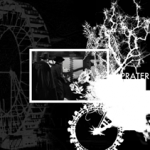
88 Constellations for Wittgenstein (To be Played with the Left Hand) (2008) by Canadian artist David Clark is a web-based Flash creation that explores the life and works of Austrian-born philosopher Ludwig Wittgenstein. In this paper, we show how rhetoric and digital technologies join to visually express philosophical concepts. The idea of “visual music” has been previously addressed in various fine arts such as literature, film, painting, sculpture, and music itself. We argue that in electronic literature it is possible to explore this concept by means of what we propose to call “gestural melodic manipulation”, which is the interplay of semiotic units (e.g. videos, sounds, images, linguistic texts) that the reader can add to the narrative by means of interaction and manipulation. In Clark’s e-lit work, “visual music” triggers the literary characteristics of the text by exposing different discourses and diverse thematic through intertextual and intermedial practices.
Introduction: Decoding Canadian Digital Poetics
Lai-Tze Fan, Dani Spinosa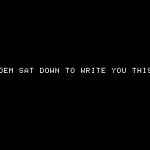
Dani Spinosa and Lai-Tze Fan discuss the need for a Canadian digital poetics, as well as for an understanding of its past developments, present shifts, and future possibilities.
Electronic Literature as Digital Humanities: An Introduction
Dene Grigar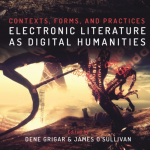
Electronic Literature as Digital Humanities: Contexts, Forms & Practices is a volume of essays co-edited by Dene Grigar and James O’Sullivan that provides a detailed account of born-digital literature by artists and scholars who have contributed to its birth and evolution. Rather than offering a prescriptive definition of electronic literature, this book takes an ontological approach through descriptive exploration, treating electronic literature from the perspective of the digital humanities (DH)––that is, as an area of scholarship and practice that exists at the juncture between the literary and the algorithmic.
Documenting a Field: The Life and Afterlife of the ELMCIP Collaborative Research Project and Electronic Literature Knowledge Base
Scott Rettberg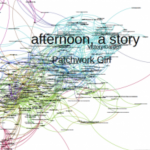
The ELMCIP Electronic Literature Knowledge Base is a large-scale digital humanities database that emerged from a six-nation European research project on electronic literature. The Knowledge Base has since grown to become the most comprehensive open-access contributory database in the field, and is still actively developed. The project director, Scott Rettberg, reflects on the process involved in developing the database and the challenges involved in continuing to document the ever-changing landscape of the field of electronic literature.
Excavating Logics of White Supremacy in Electronic Literature: Antiracism as Infrastructural Critique
Ryan Ikeda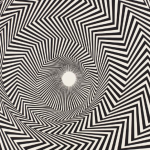
Thinking about the ways in which critical infrastructure studies can allow us to engage in antiracism critiques and practices, Ryan Ikeda provocatively challenges the electronic literature community to address some of the symbolic and material structures that he argues uphold the field. To this end, Ikeda positions elit infrastructure as dynamic and generative sites of cultural activity, and attends, in particular to the ELMCIP Knowledge Base, recent ebr discourses on decolonization, ELO fellowships, and literary historical genealogies, to examine how each constructs, affirms, racializes and extends power, privilege, and status to its members.
Experimental Electronic Literature from the Souths. A Political Contribution to Critical and Creative Digital Humanities.
Claudia Kozak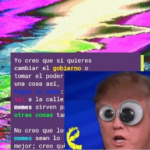
Claudia Kozak evaluates the potential of experimental e-lit to build decolonial critical paths within global digital humanities. Framing her perspective in the Epistemologies of the South (Sousa Santos) and decolonial thinking (Mignolo), she draws attention to politics of knowledge and analyses issues such as linguistic hegemonies, e-lit imaginaries and genealogies emerging from the Souths and unexpected mixtures between experimentalism and third-generation e-lit in Latin America.
When Error Rates Fail: Digital Humanities Concepts as a Guide for Electronic Literature Research
Noah Wardrip-Fruin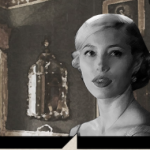
How do we think about things — like electronic literature — that combine the operational aspects of computing systems with the affective and representational aspects of the arts? We could view them through the frameworks of computer science, the literary arts, or critical interpretation. These can all be valuable. But they are all, inevitably, partial. Wardrip-Fruin proposes that digital humanities frameworks can provide a way of thinking about the dual elements of electronic literature simultaneously. Here he provides a case study: a strand of research that is both in computational approaches to social simulation and in the creation of works that build upon, and guide the development of, these simulations. He discusses the digital humanities concepts of operational logics and playable models that help him and his collaborators understand their work as they carry it out.
From Analog Shuffle to Digital Remix: Translating Robert Grenier’s Sentences
Carly Schnitzler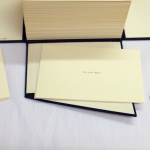
Presenting the writerly and highly remixable analog edition as both pre- and proto-digital, Carly Schnitzler revisits Robert Grenier’s Sentences. She compares the analog version of “shuffle literature” (in choosing the term, she follows the footsteps of Nick Monfort and Zuzana Husarova), published as five hundred index cards stored in a box, with its 2003 digitized edition. Such comparison serves to set the ground to investigate further the potential for writerly literary forms of what Lawrence Lessig once described as Read/Write culture, beyond the analog/digital dichotomy. The detailed and attentive analysis proposed by Schnitzler leads to somewhat surprising conclusions, where the algorithmically driven automatic choices present far less potential for meaningful and open-ended interaction with the text. Simultaneously, all the nuances surrounding the relatively early efforts at rendering Sentences as an object of networked reading are demonstrated here, including hints on digitization as a practice with its own history.
“Tracing the Ineffable”:a review of Peter Schwenger’s Asemic: the Art of Writing
Diogo Marques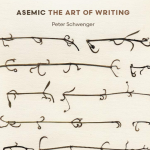
In this review of Asemic: The Art of Writing, Diogo Marques considers alongside author Peter Schwenger the seemingly asemantic style of asemic writing as a genre taking on new meaning in contemporary reading and writing networks, particularly in light of the paradigm shifts they continue to undergo as brought about by digital media.
Critical Attention and Figures of Control: On Reading Networked, Software-based Social Systems with a Protective Eye
Søren Bro Pold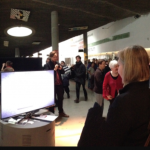
Søren Pold takes up the task to deconstruct the present cultural moment when the effects and ways of operating of social systems, as discussed by Johanna Drucker in her recent book, are becoming central interfaces to a broad range of lived reality. Pold’s offers a valuable effort at understanding the complex mechanisms of production of such systems via investigation of rhetorical and software aspects of networked media. With the focus on artistic research installation, The Oracle of Selphie by Jakob Fredslund and Malthe Stauning Erslev in collaboration with Pold and coupled with his own installation platform The Poetry Machine, Pold interrogates to what extent Drucker’s arguments allows for a critical approach to reading patterns in social media. Doing so, he simultaneously offers models of distracted reading grounded in the propositions by Michel de Certeau, Siegfried Kracauer, Walter Benjamin, and Olga Goriunova, demonstrating that “lurking” and other forms of inattentive reading can be exploited and turned into profit in the age of the platform capitalism. Such an observation calls for further research that would better grasp the nature of networked reading practices enabled (and more often forced) by our contemporary social media platforms.
A Review of Stephanie Strickland’s Ringing the Changes
Sarah Whitcomb Laiola
Sarah Whitcomb Laiola insightfully analyzes Stephanie Strickland’s recent poetry book, looking into how Strickland continues the tradition of poetic text generation, engaging at the same with material constraints resulting from 17th century pattern-ringing. The practice consists of competing teams ringing church bells based on highly complex mathematical patterns. Building on these, the poet and her team created elaborate and complex algorithms that generate the poetry woven out of textual data harvested from writings of Sha Xin Wei, Simone Weil, Hito Steyerl, and Yuk Hui among others. Written with Python code, the work demonstrates the powerful “poetics of juxtaposition”, where the list of names of Black men and women subjected to state-sanctioned violence strongly resonates throughout the whole texts.
Being the Asterisk: Noah Wardrip-Fruin and the Future of Game Studies
Stuart Moulthrop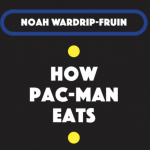
What is the connection between how computer games work and what they mean? What do we do with games and what do they do to us? In its exploration of these questions, Stuart Moulthrop sees Noah Wardrip-Fruin’s How Pac-Man Eats (MIT Press, 2020) as helping to urge game studies in a productive new direction: one that critically traces interactions between games and the broader culture in which they're embedded. More specifically, he observes some of the ways Wardrip-Fruin’s work links “technē to social purpose”, and thereby “re-engages questions of value and justice”. This, he contends, is part of what distinguishes this author—"a scientist who is also a socially aware literary writer", as he approvingly puts it—from many of the “anatomists” with whom he founded this developing field.
Ethics and Aesthetics of (Digital) Space: Institutions, Borders, and Transnational Frameworks of Digital Creative Practice in Ireland
Anne Karhio
Discussing the works of three digital creative practitioners working in Ireland, Anne Karhio situates Ireland itself as a case study for demonstrating the ways in which electronic literature as a seemingly global and transnational practice can confront the complexly situated realities of everyday embodiment, technological materiality, and politicization of national borders. She thus recommends electronic literature be seen as more crucial part of digital arts and humanities research in Ireland and elsewhere.